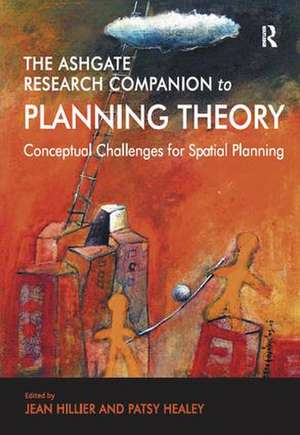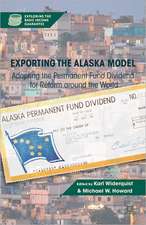The Ashgate Research Companion to Planning Theory: Conceptual Challenges for Spatial Planning
Autor Patsy Healey Editat de Jean Hillieren Limba Engleză Hardback – 28 iul 2010
Preț: 887.55 lei
Preț vechi: 1222.84 lei
-27% Nou
Puncte Express: 1331
Preț estimativ în valută:
169.83€ • 177.79$ • 140.52£
169.83€ • 177.79$ • 140.52£
Carte tipărită la comandă
Livrare economică 05-19 aprilie
Preluare comenzi: 021 569.72.76
Specificații
ISBN-13: 9780754672548
ISBN-10: 0754672549
Pagini: 520
Ilustrații: Includes 5 b&w illustrations
Dimensiuni: 168 x 244 x 40 mm
Greutate: 1.12 kg
Ediția:New ed
Editura: Taylor & Francis
Colecția Routledge
Locul publicării:Oxford, United Kingdom
ISBN-10: 0754672549
Pagini: 520
Ilustrații: Includes 5 b&w illustrations
Dimensiuni: 168 x 244 x 40 mm
Greutate: 1.12 kg
Ediția:New ed
Editura: Taylor & Francis
Colecția Routledge
Locul publicării:Oxford, United Kingdom
Cuprins
Contents: Introduction, Jean Hillier; Part 1 Conceptual Challenges from Perspectives on Spatial Planning: Introduction, Patsy Healey; Governance, space and politics: exploring the governmentality of planning, Enrico Gualini; Informality and the politics of planning, Ananya Roy; Coexistence; planning and the challenge of indigenous rights, Richard Howitt and Gaim James Lunkapis; Problematizing planning: critical and effective genealogies, Margo Huxley; Is this how it is, or is this how it is here? Making sense of politics in planning, Wytske Versteeg and Maarten Hajer; Role conflict: planners torn between dialogical ideals and neo-liberal realities, Tore Sager; Enhancing creativity and action orientation in planning, Louis Albrechts. Part 2 Conceptual Challenges for Spatial Planning Theory: Introduction, Jean Hillier; Cities and nations, Manuel DeLanda; Modulation of singularities - a complexity approach to planning competitions, Joris E. van Wezemael; Community enterprises: imagining and enacting alternatives to capitalism, J.K. Gibson-Graham and Jenny Cameron; Trouble with nature: 'ecology as the new opium for the masses' Erik Swyngedouw; Urbanity, (neo)vitalism and becoming, John Pløger; Necessary dreaming: uses of utopia in urban planning, David Pinder. Part 3 Conceptual Challenges for Spatial Planning in Complexity: Introduction, Jean Hillier; Governance and planning: a pragmatic approach, Niraj Verma; Coping with the irreducible uncertainties of planning: an evolutionary approach, Luca Bertolini; Cybernetic spatial planning: steering, managing or just letting go?, Nikos Karadimitriou; Strategic navigation in an ocean of theoretical and practice complexity, Jean Hillier; Index.
Notă biografică
Professor Jean Hillier Associate Dean,Sustainability and Urban Planning at RMIT University, Australia and Patsy Healey, Professor Emeritus, School of Architecture, Planning and Landscape, Newcastle University, UK
Recenzii
'The book is logically structured around three major themes, and although the focus of analysis is cities in the developed world, it is refreshing to see other parts of the world been brought into discussion, most notably South-East Asia... Overall, this book will be a welcome addition to the growing body of literature on contemporary spatial planning theory and practice.' Housing Studies 'There are many gems throughout this volume ... putting together such a luminary group of thinkers is no small feat. The result is that reading through the collection was a treat. Planning scholars owe a debt to Hillier and Healey for their vision in producing this magisterial volume. It belongs in any serious planning scholar's library.' Environment and Planning B: Planning and Design
Descriere
This Companion provides a stimulating and comprehensive overview of planning theory. It brings together authoritative chapters on key issues from a team of respected experts from within and beyond what is narrowly defined as 'planning'. The authors draw on different disciplinary traditions and theoretical frames to explore different ways of conceptualizing spatial planning. The book is divided into four main sections: understandings of place; understandings of governance; imagining futures; and spatial planning and governance in complexity.













